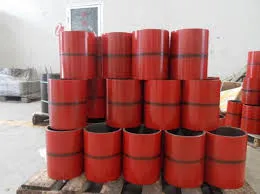- Afrikaans
- Albanian
- Amharic
- Arabic
- Armenian
- Azerbaijani
- Basque
- Belarusian
- Bengali
- Bosnian
- Bulgarian
- Catalan
- Cebuano
- Corsican
- Croatian
- Czech
- Danish
- Dutch
- English
- Esperanto
- Estonian
- Finnish
- French
- Frisian
- Galician
- Georgian
- German
- Greek
- Gujarati
- Haitian Creole
- hausa
- hawaiian
- Hebrew
- Hindi
- Miao
- Hungarian
- Icelandic
- igbo
- Indonesian
- irish
- Italian
- Japanese
- Javanese
- Kannada
- kazakh
- Khmer
- Rwandese
- Korean
- Kurdish
- Kyrgyz
- Lao
- Latin
- Latvian
- Lithuanian
- Luxembourgish
- Macedonian
- Malgashi
- Malay
- Malayalam
- Maltese
- Maori
- Marathi
- Mongolian
- Myanmar
- Nepali
- Norwegian
- Norwegian
- Occitan
- Pashto
- Persian
- Polish
- Portuguese
- Punjabi
- Romanian
- Russian
- Samoan
- Scottish Gaelic
- Serbian
- Sesotho
- Shona
- Sindhi
- Sinhala
- Slovak
- Slovenian
- Somali
- Spanish
- Sundanese
- Swahili
- Swedish
- Tagalog
- Tajik
- Tamil
- Tatar
- Telugu
- Thai
- Turkish
- Turkmen
- Ukrainian
- Urdu
- Uighur
- Uzbek
- Vietnamese
- Welsh
- Bantu
- Yiddish
- Yoruba
- Zulu
tubing collar
Understanding Tubing Collars in Oil and Gas Operations
In the oil and gas industry, precision, efficiency, and durability are paramount. One of the critical components contributing to these factors is the tubing collar. It plays a vital role in the overall integrity of well operations, especially during the extraction process. This article will delve into the purpose, types, and significance of tubing collars in oil and gas operations.
What is a Tubing Collar?
A tubing collar is a connecting device used primarily in the drilling and production of oil and gas wells. It serves as the junction between two lengths of tubing and is critical to maintaining the structural integrity of the wellbore. Made from high-strength materials such as steel, tubing collars are designed to withstand the harsh environments often encountered in oil and gas extraction, including high pressures and corrosive substances.
Functions of Tubing Collars
The primary function of tubing collars is to connect sections of tubing. This connection ensures a continuous pathway for the flow of oil or gas from the reservoir to the surface. However, tubing collars perform several other essential functions
1. Seal Integrity Tubing collars provide a tight seal that prevents fluid leakage. This is crucial for maintaining well control and ensuring that the extracted resources are not lost.
2. Pressure Management They help manage the pressure within the tubing string. Effective pressure control is vital for optimizing production rates and protecting the wellbore from catastrophic failures.
3. Load Bearing Tubing collars bear the loads from the column of tubing and any additional equipment attached (e.g., pump units). They ensure the structural integrity of the entire assembly.
tubing collar

Types of Tubing Collars
There are various types of tubing collars used in the oil and gas industry, each designed for specific applications
1. Regular Tubing Collars These are standard collars that connect tubing strings in typical drilling operations.
2. Screwed Tubing Collars These come with threaded connections, making them easier to install and remove without specialized tools.
3. Welded Tubing Collars Using welding techniques, these collars provide a permanent connection, suitable for applications where long-term reliability is essential.
4. Specialty Collars These include collars designed for specific applications, such as those that accommodate additional functionalities like pressure monitoring or chemical injection.
Importance of Quality in Manufacturing
The quality of tubing collars is crucial. Given the harsh conditions in which they operate, they must be manufactured to exacting standards. High-quality materials and meticulous engineering processes are essential to ensure that tubing collars can withstand the demands of the field. Defective collars can lead to costly outages, spills, and environmental hazards.
Conclusion
Tubing collars are not just simple connectors; they are essential components of oil and gas operations that significantly affect performance, safety, and efficiency. By facilitating a robust connection between tubing sections, they ensure a seamless flow of resources while maintaining the structural integrity of the well. As the oil and gas industry continues to evolve, advancements in tubing collar design and materials will likely play a pivotal role in enhancing production techniques and safeguarding environmental standards. Understanding and investing in high-quality tubing collars is critical for companies striving to optimize their operations and achieve sustainable growth in a competitive market.
-
Tubing Pup Joints: Essential Components for Oil and Gas OperationsNewsJul.10,2025
-
Pup Joints: Essential Components for Reliable Drilling OperationsNewsJul.10,2025
-
Pipe Couplings: Connecting Your World EfficientlyNewsJul.10,2025
-
Mastering Oilfield Operations with Quality Tubing and CasingNewsJul.10,2025
-
High-Quality Casing Couplings for Every NeedNewsJul.10,2025
-
Boost Your Drilling Efficiency with Premium Crossover Tools & Seating NipplesNewsJul.10,2025







